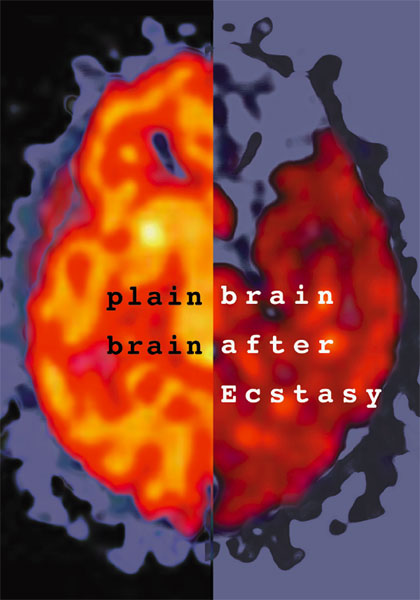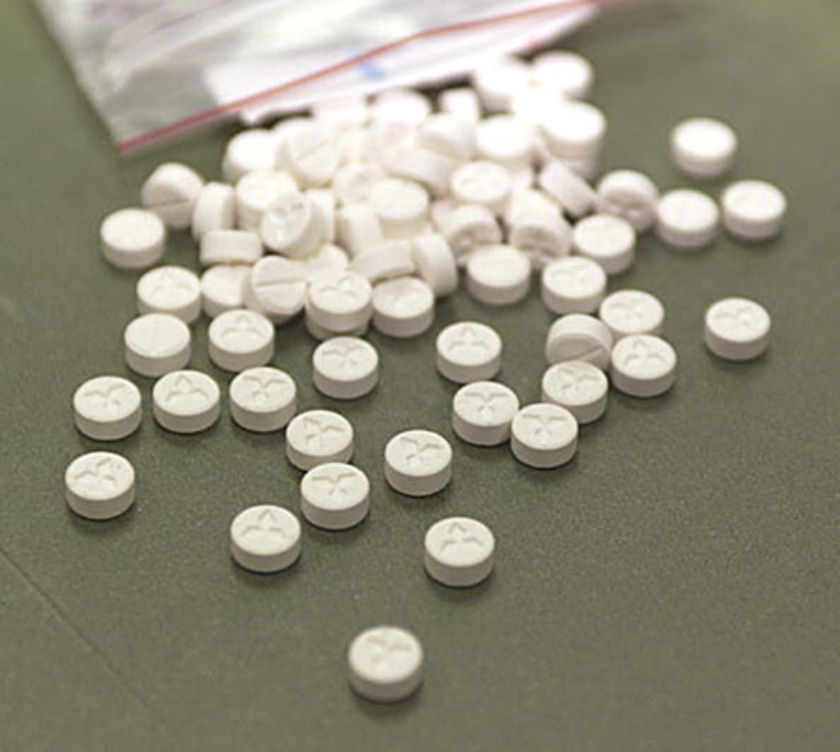4 * Ecstasy
Ecstasy is a product (tablet, capsule, powder) with a molecule of the chemical family of amphetamines, MDMA (methylenedioxymethamphetamine), responsible for the psychoactive effects of hallucinogens.
Ecstasy is usually in the form of tablets color and shapes, decorated with a pattern or a logo that changes regularly. The content of a tablet purporting to ecstasy is often uncertain, nine times out of ten in toxicology testing, the tablets contain many molecules amphetamine (MDMA in 85% of cases), but there is also the caffeine, drugs, sugars and different binders. Seven percent of tablets sold as ecstasy actually contain no MDMA.
When a tablet containing MDMA, the actual amount may vary from a few milligrams to more than 150 milligrams, which is varied effects in the same proportion and makes more difficult the assessment of risk.
Effects and Risks


After a period of "floating", settled a certain euphoria, a feeling of well-being and "empathy." These effects are felt 30 to 60 minutes after ingestion. Sometimes, however, comes a feeling of anxiety, an inability to communicate. In general, the effects last between four and six hours before "the Downhill"Akin to a form of depression more or less intense.
The consumption of MDMA can cause nausea, sweating, headaches. Especially, it can cause dehydration of the body and elevated temperature (hyperthermia), even stronger than the consumer is in a superheated atmosphere and made a physical effort, as often at parties or raves .
Neuropsychiatric disorders (anxiety, hallucinations), digestive problems and loss of consciousness have been described. Serious accidents have been linked to ecstasy use: death by hyperthermia, cardiac arrhythmias. More generally, the cardiac arrhythmias are not uncommon.
Regular use results in time wasting and sometimes irritability. Ecstasy can cause a form of psychological dependence. Severe depression requiring medical treatment, can occur with heavy use.
Finally, scientific studies have established that damage nerve cells are possible following the consumption of MDMA. It is unclear to date whether they are reversible. They could lead to degenerative diseases or be responsible for depression.
Polydrug
In case of concomitant use with other substances, risk increased: for example in association with theAlcohol or Cannabis in a context of celebration, or in combination with certain drugs, some HIV treatments, some antidepressants or simply aspirin.
8 deaths related to ecstasy were found by police in 2003, including four in combination with other substances.
Psychic effects
Subjective experience it is intensified (color, music, taste) and a change of sentiment, as well as an expansion of consciousness compared with the "inner world" (with chronic use of Ecstasy in particular to young consumers may come to the so-called "syndrome amotivational with passivity, apathy, the efficiency loss, weakness, inability to endure frustration and social withdrawal in itself.
Studies of P. Mann (1987) led to the following observations: Consumption "casual" of marihuana and hashish is comparatively harmless to adults with a psyche strengthened and enhanced social status. With young people, who are still in the development of personality and willing adult neurotic that occasional use may however lead to permanent consumption and "amotivational syndrome" related to this issue.
In addition, the suspicion is that consolidates Cannabis - like alcohol - in the physiological sense and may lead to psychological dependence. see also TCL.
MILDT notes on this:
"Effects and hazards of Ecstasy: The effects of consumption of ecstasy are variables: slight euphoria, accompanied by a feeling of calm and a desire spontaneous laughter, mild drowsiness. Users of all ages typically consume for pleasure and relaxation.
High doses cause early difficulties in accomplishing a task, disrupt the perception of time, visual perception and immediate memory, and cause lethargy.
These effects can be dangerous if you drive a car, if we use some machines. "
On the issue of ecstasy dependence and they note:
"Repeated use and abuse of ecstasy can lead to dependence psychic medium to high depending on the individual. However, experts agree that physical dependence is minimal. However, regular use, often revealing problems, is worrying, especially when very young users. "



